At TrustPoint Hospital in Murfreesboro, Tennessee, we understand the emotional burden of psychotic disorders, and we also understand how beneficial it can be to receive treatment for this type of mental health concern.
Psychotic Disorder Treatment Overview
Learn more about psychotic disorder treatment at TrustPoint Hospital in Murfreesboro, TN
When a person is suffering from delusions and/or hallucinations, or displays bizarre behaviors and speech patterns that do not seem to make sense, that individual may be suffering from a psychotic disorder.
Delusional disorder, schizophrenia, and schizoaffective disorder are a few examples of the types of psychotic disorders that an individual can suffer from. When these types of conditions are present, the effects can be monumental if left untreated. A person’s ability to function on a day-to-day basis can be hindered, and one’s overall quality of life can become tarnished when this type of mental illness is affecting an individual’s life. However, with help from trained professionals and by partaking in effective therapeutic interventions, a person grappling with a psychotic disorder can begin living a healthier and happier existence.
In choosing TrustPoint Hospital as the place to receive care for a psychotic disorder, you or someone you care about will be invited to partake in a truly transformative treatment experience that is designed to bring about healing on a proudly deep level. Our effective interventions coupled with our staff’s dedication to each patient’s success is what make this hospital such a special place to recover. At TrustPoint Hospital, lives are changed for the better.
Helping a Loved One
Helping a loved one or family member get treatment for a psychotic disorder
Those who suffer from psychotic disorders frequently require the assistance of loved ones to act on their behalf when the symptoms of such conditions prevent them from being able to make sound decisions when it comes to their care. In some circumstances, a person with a psychotic disorder may begin to behave in a manner that compromises his or her safety. When this is the case, friends and family members may need to step in to get the care their loved one needs. Furthermore, if a person is struggling to manage certain psychotic symptoms, that individual may benefit from further support in a psychotic disorder treatment center program.
If you are close to someone who may be in need of care for a psychotic disorder, please consider doing the following:
- Become educated and learn about the symptoms and effects of psychotic disorders.
- Familiarize yourself with the treatment options that have helped other individuals suffering from psychotic disorders.
- Formulate a safety plan with other loved ones so that a plan of action can be in place should your loved one require immediate care for his or her symptoms.
- Speak with your loved one about the need for treatment and discuss the benefits of seeking treatment with him or her.
- If your loved one is already on a medication regimen to manage his or her symptoms, encourage him or her to be diligent with taking his or her medication.
- Come to learn about the programs available to your loved one should he or she be in need of treatment in the foreseeable future.
Finally, it is a good idea to seek support of your own and practice good self-care before, during, and after your loved one seeks treatment. As someone who is assisting a loved one battling a psychotic disorder, it is imperative that you also take care of yourself so that you are rejuvenated enough to be of best help to the person you care about.
Why Consider Treatment
Why consider psychotic disorder treatment at TrustPoint Hospital in Murfreesboro, TN
Learning to effectively manage the symptoms of a psychotic disorder can be a challenging endeavor to take on. However, with treatment, it is possible to live a healthy and productive life that is not compromised by this sort of mental illness. The alternative, not seeking treatment, can be the opposite and cause an individual to live a life that is rife with obstacles.
Many people who grapple with psychosis struggle to acquire and maintain gainful employment, which could result in financial strain or homelessness. Familial relationships can also suffer, and it could prove difficult for an individual to form new connections with others when the symptoms of a psychotic disorder are present. Substance abuse, which could lead to addiction, is yet another concern prevalent among individuals who experience psychosis; a concern that can greatly infringe upon an individual’s efforts to live to his or her fullest potential. Lastly, any co-occurring mental illnesses or comorbid medical concerns can become worse due to a psychotic disorder, which further stresses the importance of seeking care.
By engaging in a program that supplies the evidence-based interventions that have helped others learn to manage the symptoms of a psychotic disorder, it is possible to experience a happier tomorrow.
Types of Treatment
Types of psychotic disorder treatment offered at TrustPoint Hospital in Murfreesboro, TN
Located on a 17-acre campus in Murfreesboro, Tennessee, TrustPoint Hospital is an acute care treatment center that is dedicated to providing exceptional care to patients who are in need of immediate treatment to address the symptoms of psychotic disorders. With a steadfast mission to improve the quality of life for our patients and their families, our highly qualified and experienced staff members ensure that all patients receive care that is safe, efficient, reliable, and elicits lasting results. At TrustPoint, we deliver patient-centered treatment that addresses each individual as the unique person that he or she is, helping him or her to achieve his or her recovery goals, while receiving the compassion, integrity, honesty, and trust that he or she deserves.
At TrustPoint, our behavioral healthcare treatment program is separated into three distinct units. These units include the Adult Behavioral Health Unit, the Adult Affective Disorders Unit, and the Senior Psychiatry Unit. Individuals ages 18 and older who are suffering from depression, anxiety, bipolar disorder, or mood disorders will receive treatment in the Adult Affective Disorders Unit, while individuals who are suffering from thought disorders or other co-occurring disorders will be treated on the Adult Behavioral Health Unit. Individuals aged 65 and older who are suffering from behavioral disturbances as they relate to dementia or other cognitive disorders will receive care on the Senior Psychiatry Unit.
During the admissions process, prospective patients will participate in a thorough assessment so that pertinent information can be gathered, including the symptoms that are present that indicate the need for treatment. The information provided will help clinicians determine what the most appropriate level of care will be for meeting that individual’s specific needs. Included in that determination will be which unit will best help the patient achieve his or her recovery goals.
When patients receive care in any of our treatment center’s units, including those who are receiving care for a psychotic disorder, they are given a thorough individualized treatment plan in order to ensure that their particular needs and concerns are appropriately addressed. The following therapeutic interventions may be incorporated into these treatment plans:
Medication management: Patients who are struggling with symptoms related to psychiatric concerns, including those associated with psychotic disorders, often benefit from the implementation of certain psychotropic medications. The prescribing of any medications, however, is always determined on a case-by-case basis. Individuals who are taking medications will have the opportunity to meet with a psychiatrist, Licensed Independent Practitioner (LIP), physician, and/or nurse practitioner on an ongoing basis for medication management services.
Individual therapy: Licensed practitioners provide individual therapy on an as-needed basis to patients who are receiving treatment for the symptoms of a psychotic disorder. Most individual counseling sessions occur with a social worker, and the frequency of those sessions will be determined based on each individual’s clinical need.
Group therapy: Group therapy sessions can be of immense benefit to individuals who are suffering from the symptoms of psychotic disorders. Group sessions are held throughout the day and are conducted by social worker, nursing, or adjunct staff members. Social work and nursing groups are either didactic or process-oriented, depending on the patient population and the clinical needs of those participating in the group. The topics discussed during the group therapy sessions will vary, but may include the following:
- Relationships
- Communication skills
- Stress management
- Medication management
- Grief and loss
- Anger management
- Disease / disorder education
- Healthy boundaries
- Guilt and shame
Family therapy: When an individual is suffering from a psychotic disorder, including his or her family members into treatment can often be extremely beneficial. When doing so is deemed clinically appropriate for a patient, family therapy sessions will be scheduled on an as-needed basis. These sessions are led by a qualified and experienced social worker.
Experiential therapy: In order to support a holistic approach to treatment when patients are learning to manage the symptoms of psychotic disorders, the staff at TrustPoint has found that incorporating experiential therapies into the overall plans of care can be helpful in the recovery and healing process. The types of experiential therapies that patients may participate in during their time at TrustPoint can include the following:
- Music therapy
- Aroma therapy
- Role-playing
- Outside physical activity when appropriate
The typical length of stay in the Affective Disorder and Behavioral Health Units is between seven and 10 days, while those receiving care in the Senior Psychiatry Unit typically stay for 10 to 14 days. The exact amount of time that a patient will spend at TrustPoint, however, is always based solely on his or her clinical needs.
Because TrustPoint Hospital delivers acute care to those in need, we recognize how important the discharge process is. In order to ensure that patients remain successful in the recovery gains that they have made while in our care, we strive to set up appropriate continuing care options for them that will best meet their ongoing needs. During a patient’s stay, an interdisciplinary team meeting is held so as to discuss and formulate a discharge plan and set up options for ongoing care services. The information is then presented to the patient and his or her family members.
If you or a loved one is suffering from a psychotic disorder and could benefit from comprehensive care in order to stabilize, handle crises, and/or learn how to better manage symptoms, please do not hesitate to contact the caring and compassionate staff at TrustPoint Hospital in Murfreesboro, TN. Your or your loved one’s suffering can end today.






